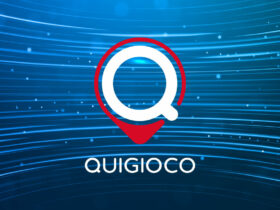We discover the transformative impact of Blockchain on agriculture, illustrating how real-world applications are reshaping supply chains
In agriculture, the integration of blockchain technology is emerging as a revolutionary force, promising greater transparency, efficiency and sustainability according to Immediate Evex. This article delves into Blockchain’s transformative impact on agriculture, illustrating how real-world applications are reshaping supply chains, ensuring food security, and empowering farmers around the world.
1. Supply chain transparency with blockchain
agricultural supply chains. For example, Walmart has partnered with IBM’s Food Trust network to implement blockchain to track the origin of food products. This initiative allows consumers to access real-time information about a product’s journey from farm to store shelves.
2. Improve food security
Blockchain is critical to improving food safety by enabling rapid and accurate identification of sources of contamination. Ripe.io, a blockchain startup, uses the technology to create an immutable record of food production data. This ensures that the source can be quickly identified in the event of contamination, avoiding widespread recalls and protecting consumers.
3. To small farmers
Blockchain technology allows small farmers direct access to global markets and fair compensation. Agridigital, an Australian startup, uses blockchain to streamline grain supply chains, giving farmers greater visibility into market conditions and ensuring transparent and secure transactions.
4. Smart contracts for fair transactions
Smart contracts on blockchain platforms facilitate fair and transparent transactions between farmers and buyers. Provenance’s Swiss platform uses smart contracts to automate and execute agreements between coffee producers and buyers, ensuring fair compensation and reducing the complexities of traditional supply chain transactions.
5. Reduction of food fraud
Food fraud is a significant concern in the agricultural sector. Blockchain solves this problem by creating an unalterable record of every transaction. Vechain, a blockchain platform, partners with companies like DNV and Brilliant Foods to track and authenticate food products, mitigating fraud risks and ensuring the integrity of the food supply chain.
6. Efficient record keeping with blockchain
The decentralized ledger of the Blockchain serves as a reliable record-keeping system for agricultural data. Agunity, a blockchain-based platform, helps farmers in remote regions with efficient record keeping of transactions and agreements. This ensures that crucial data is stored securely and easily accessible to improve decision making.
7. Promotion of sustainable practices
Blockchain promotes sustainability in agriculture by providing a transparent record of agricultural practices. The World Wildlife Fund (WWF) has partnered with BCG Digital Ventures and the Blockchain Impact Institute to develop OpenSC, a blockchain platform that tracks the food supply chain. This encourages sustainable and ethical farming practices by holding producers accountable for their environmental impact.
In conclusion, the integration of blockchain technology in agriculture marks a paradigm shift in the sector. Real-world examples like Walmart’s collaboration with IBM, Ripe.io and Agridigital illustrate the multiple benefits, from increased supply chain transparency to empowering small farmers. As the agricultural sector embraces blockchain, the potential for greater efficiency, sustainability and trust in the global food supply chain becomes increasingly promising.
















Leave a Reply
View Comments